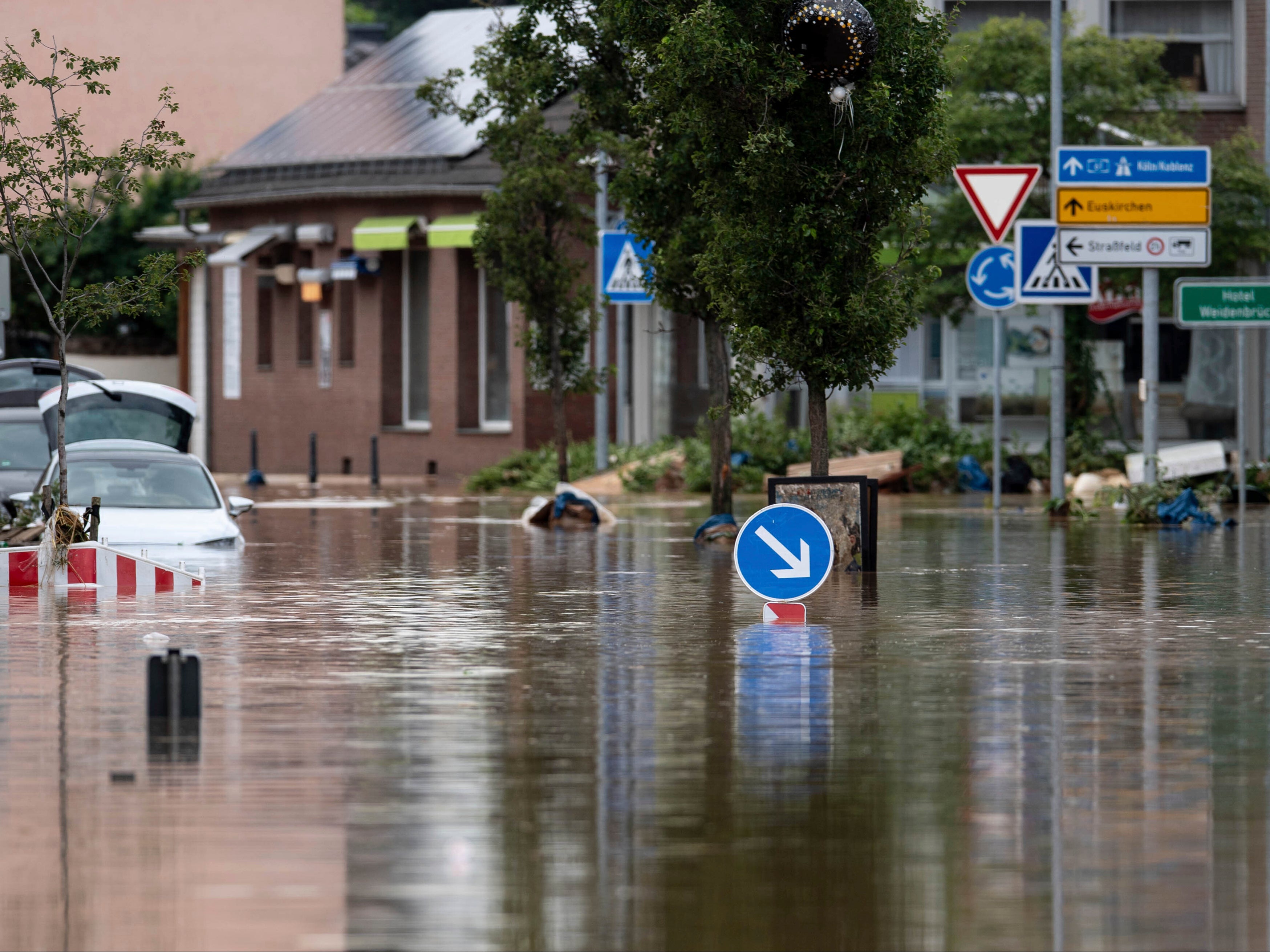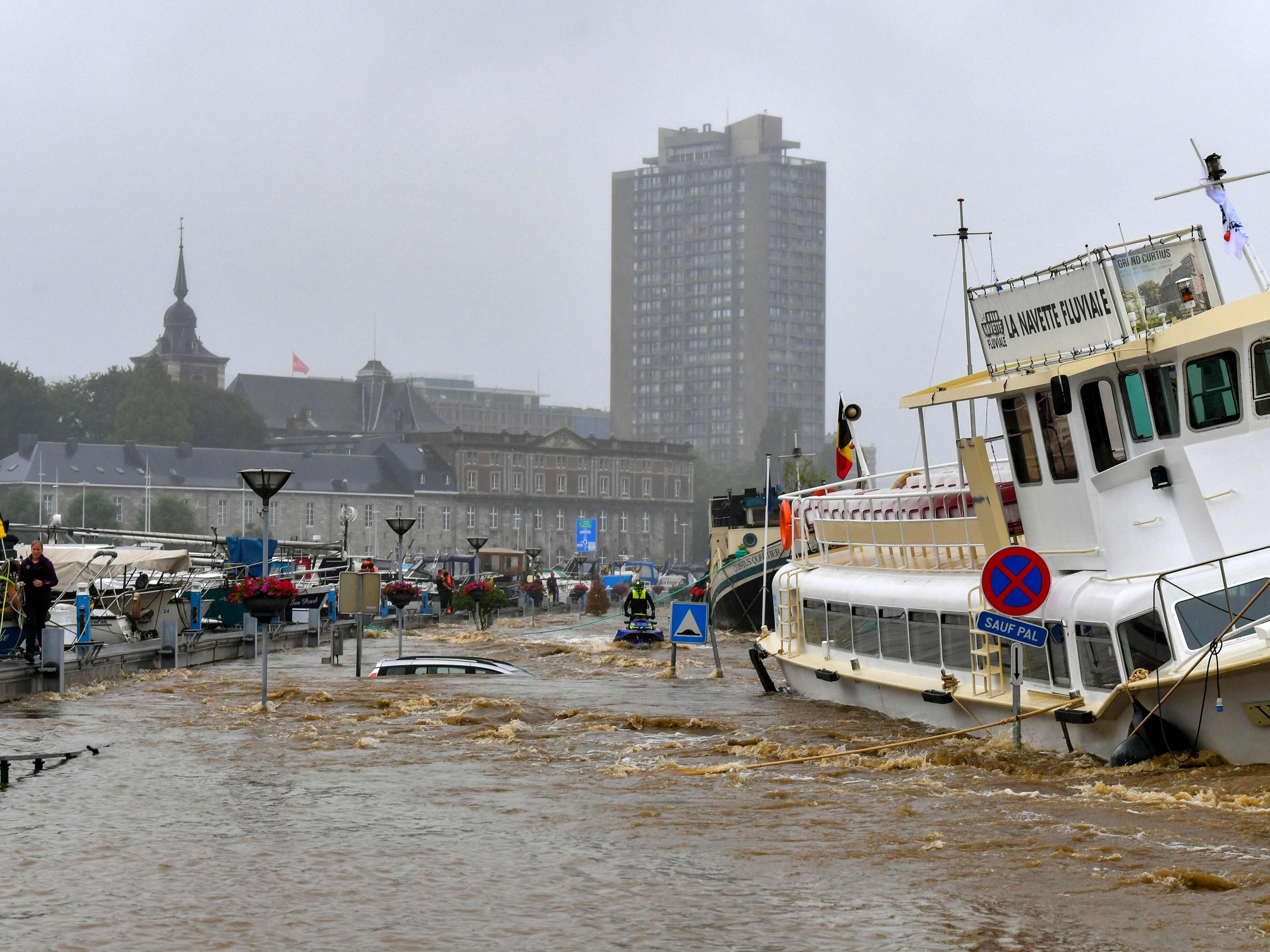Germany and Belgium floods map: Which areas are affected and why?
Several countries have been hit with heavy flooding in recent days
Flooding has hit parts of Europe over the past week, resulting in at least 150 deaths and collapsed buildings.
Germany, Belgium and the Netherlands are among the countries who have faced heavy flooding in recent days.
Relentless rain and storms have caused rivers and reservoirs to burst their banks, flooding homes and bringing down buildings. Flash floods have swept through areas after soil failed to absorb any more water.
Follow Germany-Belgium floods live: Death toll passes 150
In Germany, two western states – North Rhine-Westphalia and Rhineland-Palatinate – have been badly hit by the flooding.
In North Rhine-Westphalia, the country’s most popolous state, the Euskirchen region south of Bonn has seen at least 15 deaths due to the flooding.
Cologne, Kamen and Wuppertal – all cities or towns in the state – have also been affected.
In Erftstadt, a town southwest of Cologne, people became trapped on Friday when the ground gave way and their homes collapsed.
Further south in the Rhineland-Palatinate village of Schuld, scores were reported missing this week after houses caved in.

Across the border in Belgium, the city of Liege and surrounding areas – including Pepinster and Verviers – have been badly affected.
The Meuse broke its banks in Liege, which sits in the country’s east, earlier this week, leaving some locals taking to boats.

Over in the Netherlands, the southern Limburg province has been hit by the recent bout of flooding. Damage has been seen in places such as the town of Valkenburg and images have shown locals wading through water in the city of Roermond.
France has also seen damage linked to floods, with heavy rains submerging vegetable fields, many homes and a World War I museum in Romagne-sous-Montfaucon in the country’s northeast.
Areas near the Luxembourg-German border faced travel disruption and evacuations due to the floods, according to French broadcaster France Bleu.
In Switzerland, heavy rain as caused several rivers and lakes to burst their banks, with authorities in the city of Lucerne closing several pedestrian bridges over the Reuss river.
Meanwhile in England, thunderstorms caused flash flooding in London and South East England.
Thunderstorms caused flash flooding in London and the South East this week including multiple Underground station.
In the capital, water covered train lines and disrupted services, homes were flooded and cars submerged amid heavy rainfall.
After England’s flooding, Professor Ralf Toumi from Imperial College London’s faculty of natural science told The Independent: “Under climate change heavier or more intense rain is expected as the atmosphere will hold more moisture.
He added: “The risk of flash flooding will also increase if the weather system does not move away.”
Additional reporting by agencies
Join our commenting forum
Join thought-provoking conversations, follow other Independent readers and see their replies
0Comments